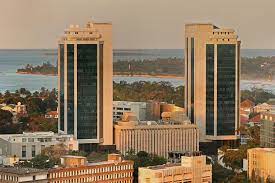Tanzania’s economy is projected to grow as expected despite the resurgence of Covid-19 in some countries plus raising energy prices.
The Bank of Tanzania (BoT) said on Tuesday that the global growth has been slightly lower than projected but will still support the country’s growth prospects. The country’s GDP is forecasted at 4.8 per cent in this year.
BoT’s Monetary Policy Committee (MPC) sat on Monday observed that the pace of global economic growth “has been slightly lower than projected…but still supports Tanzania growth prospects”.
“Inflation has generally been rising in many countries due to increase in demand and rising energy prices, but central banks view the increase to be temporary, hence sustaining accommodative monetary policy,” BoT’s MPC statement showed.
The MPC said suggested that to dampen the energy price shocks on inflation policies should ensure there is adequate food supply and maintain a stable exchange rate.
“The rising oil prices will turnaround if production increases, [but there are] a need to ensure adequate food supply and maintain stable exchange rate to partially dampen the impact of high oil prices on inflation,” the statement said.
The committee reviewed the conduct of monetary policy in September and October and agreed that the central bank should maintain an accommodative monetary stance in November and December to facilitate the recovery of the economy.
On top of that the MPC said the banks managed to maintain liquidity at the required levels.
“This also led to the stability of short-term interest rates at low levels,” the statement said.
The private sector credit growth increased to 4.6 per cent in September up from 3.2 per cent in August.
The committee was “confident of further improvement of credit growth due to the ongoing normalisation of the global economy and policy measures” adopted by the central bank to promote credit intermediation.
Also, foreign exchange reserves remained adequate, totalling 6.7 billion US dollars at the end of last month, which was sufficient to cover about seven months of projected imports.
The amount, according to the statement, is consistent with the country and regional benchmarks.
Inflation remained within the target of 3.0 to 5.0 per cent and in line with EAC and SADC convergence criteria, despite slowly edging up since June and is expected to remain consistent with the targets.
Meanwhile, revenue performed satisfactorily, with tax revenue at more than 90 per cent of the target.
In Zanzibar, inflation remained low and consistent with the target of below 5.0 per cent and revenue performance was 73.6 per cent of the target.
The external sector is improving from the negative effects of the pandemic, sustaining a low current account deficit, as export proceeds of minerals, cash crops and tourism started to flow in.






